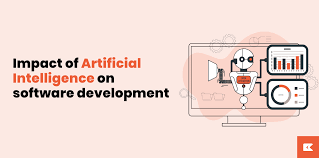Unlocking the Power of Modern Applications in Today’s Digital Landscape
The Importance of Applications in Today’s Digital World
In today’s fast-paced digital age, applications have become an integral part of our daily lives. From mobile apps that help us stay connected on the go to desktop applications that streamline our work processes, the significance of applications cannot be overstated.
Applications serve a variety of purposes, catering to different needs and preferences. They provide convenience, efficiency, and accessibility to users across various platforms and devices.
Enhancing Productivity
Applications play a crucial role in enhancing productivity both in personal and professional settings. Task management apps help individuals organize their schedules effectively, while project management tools streamline collaboration among team members in a work environment.
Improving Communication
Communication apps have revolutionized the way we interact with others. Whether it’s through messaging apps for quick conversations or video conferencing tools for virtual meetings, applications have made communication more seamless and efficient.
Entertainment and Leisure
Entertainment apps provide endless opportunities for relaxation and enjoyment. From streaming services for music and movies to gaming apps that offer immersive experiences, applications have transformed the way we entertain ourselves.
Customization and Personalization
One of the key benefits of applications is their ability to be customized according to individual preferences. Users can personalize settings, layouts, and features to create a tailored experience that suits their unique needs.
The Future of Applications
As technology continues to evolve, so will applications. With advancements in artificial intelligence, augmented reality, and other cutting-edge technologies, the future holds exciting possibilities for innovative app development that will further enhance our digital experiences.
In conclusion, applications have become indispensable tools that enrich our lives in countless ways. Their versatility, functionality, and user-friendly interfaces make them essential components of today’s digital world.
6 Essential Tips for a Successful Job Application
- Ensure your application is error-free by thoroughly testing it before submission.
- Tailor your resume and cover letter to highlight relevant skills and experiences for the specific job you are applying for.
- Follow the application instructions provided by the employer carefully to increase your chances of being considered.
- Research the company you are applying to so that you can demonstrate knowledge and interest during interviews.
- Proofread all written materials, such as emails and responses to application questions, to present yourself professionally.
- Keep track of deadlines for applications and follow up with employers if necessary.
Ensure your application is error-free by thoroughly testing it before submission.
To ensure the success of your application, it is crucial to prioritize thorough testing before submission. By meticulously testing your application for errors and bugs, you can identify and address any issues that may impact its performance or user experience. Investing time and effort in testing not only helps you deliver a high-quality product but also instills confidence in your users, ensuring a seamless and error-free experience when they interact with your application.
Tailor your resume and cover letter to highlight relevant skills and experiences for the specific job you are applying for.
When applying for a job, it is crucial to tailor your resume and cover letter to emphasize the skills and experiences that are most relevant to the specific position you are seeking. By customizing your application materials to match the requirements and preferences outlined in the job description, you demonstrate your suitability for the role and increase your chances of standing out as a qualified candidate. Highlighting key qualifications that align with the job requirements showcases your expertise and dedication, making a compelling case for why you are the ideal fit for the position.
Follow the application instructions provided by the employer carefully to increase your chances of being considered.
Following the application instructions provided by the employer carefully is crucial to increase your chances of being considered for the position. Employers often use specific instructions to assess candidates’ attention to detail and ability to follow directions. By adhering to these guidelines, you demonstrate your professionalism and commitment to the application process, setting yourself apart as a conscientious and qualified candidate. Paying close attention to the application requirements shows that you value the opportunity and are willing to put in the effort required to be considered for the role.
Research the company you are applying to so that you can demonstrate knowledge and interest during interviews.
When applying for a job, it is essential to research the company thoroughly to demonstrate both knowledge and interest during interviews. By understanding the company’s values, goals, and culture, you can showcase your genuine interest in becoming a part of their team. This preparation not only allows you to ask informed questions but also enables you to tailor your responses to align with the company’s mission and vision. Employers appreciate candidates who show a proactive approach in learning about the organization, as it reflects dedication and professionalism in pursuing the opportunity.
Proofread all written materials, such as emails and responses to application questions, to present yourself professionally.
Ensuring that written materials, including emails and responses to application questions, are thoroughly proofread is essential for presenting oneself professionally. Attention to detail in grammar, spelling, and overall clarity not only demonstrates a high level of professionalism but also reflects a commitment to effective communication. By taking the time to review and refine written content before submission, individuals can convey a polished image and make a positive impression on potential employers or recipients.
Keep track of deadlines for applications and follow up with employers if necessary.
It is crucial to stay organized and proactive when applying for opportunities. Keeping track of application deadlines ensures that you submit your materials on time and do not miss any important opportunities. Additionally, following up with employers, if necessary, demonstrates your interest and commitment to the position. This proactive approach can help you stand out as a diligent and responsible candidate in the competitive job market.





